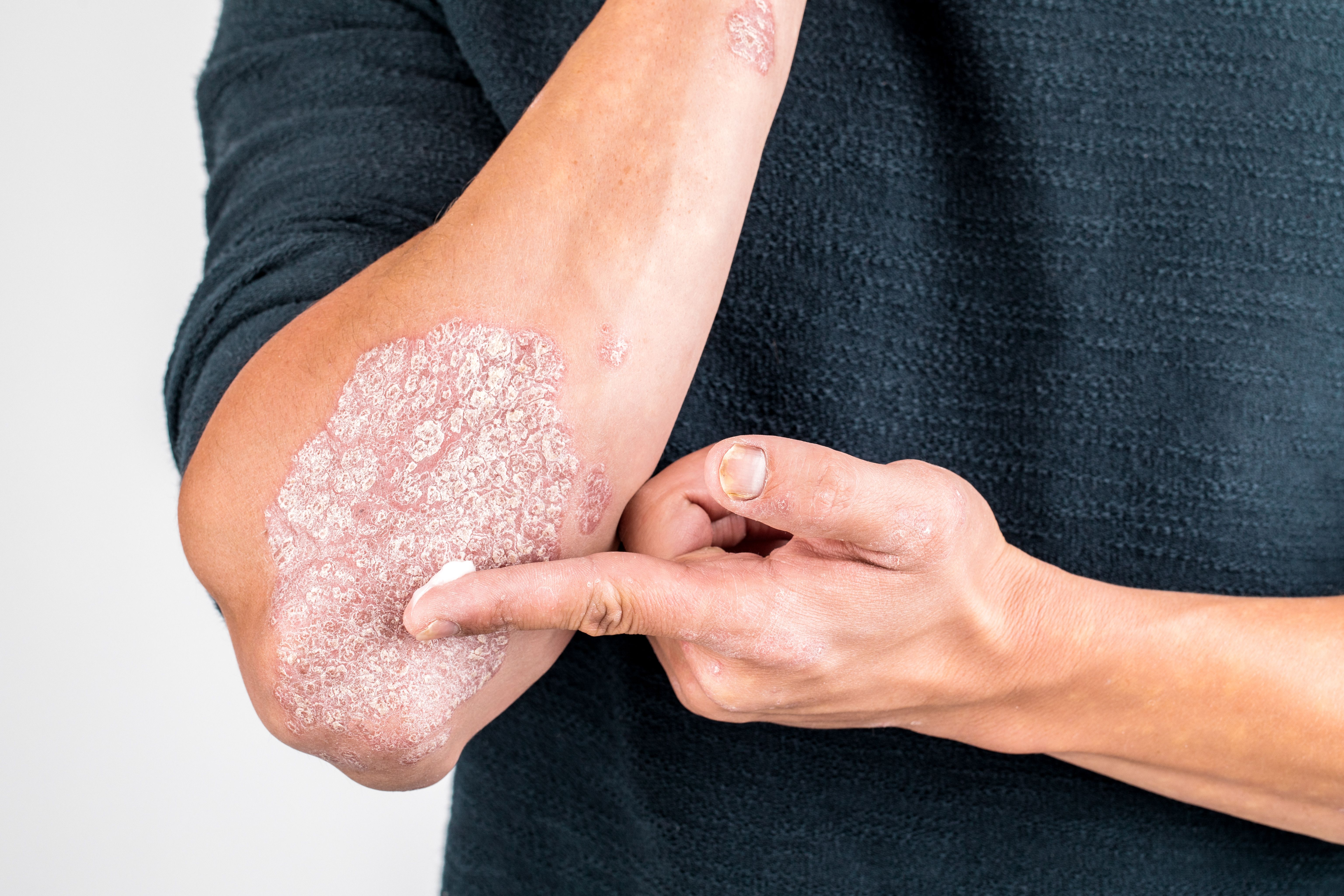- Acne
- Actinic Keratosis
- Aesthetics
- Alopecia
- Atopic Dermatitis
- Buy-and-Bill
- COVID-19
- Case-Based Roundtable
- Chronic Hand Eczema
- Chronic Spontaneous Urticaria
- Drug Watch
- Eczema
- General Dermatology
- Hidradenitis Suppurativa
- Melasma
- NP and PA
- Pediatric Dermatology
- Pigmentary Disorders
- Practice Management
- Precision Medicine and Biologics
- Prurigo Nodularis
- Psoriasis
- Psoriatic Arthritis
- Rare Disease
- Rosacea
- Skin Cancer
- Vitiligo
- Wound Care
Article
Researchers isolate psoriasis triggering proteins
Author(s):
Can targeting differentially regulated proteins reverse or prevent disease?

Nicole Ward, Ph.D. Photo courtesy: Billy Delfs
In a move that could bring scientists closer to developing treatments that target the causes of psoriasis, Case Western Reserve researchers have identified four proteins likely to contribute to the skin disease.
READ: Case Western gets $1.9M grant for psoriasis research
The study’s senior author Nicole L. Ward, Ph.D, associate professor of dermatology and neurosciences, Case Western Reserve University School of Medicine, and colleagues took skin tissue samples from Ward’s psoriasis transgenic mouse model, called the KC-Tie2 mouse, and compared it to skin tissue samples of normal mice. They then examined the proteins they identified in human psoriasis skin cells and human psoriasis skin tissue samples to confirm the increased presence of these proteins in human disease.
The study, published January 1, 2015 in Molecular & Cellular Proteomics, identifies differentially regulated proteins in psoriasis, Dr. Ward writes in an email to Dermatology Times.
READ: Psoriasis researcher examines nervous system’s role in perpetuating disease
“We used an unbiased in-gel label-free proteomics approach to identify more than 1000 proteins that were either increased or decreased in our psoriasis mouse model, the KC-Tie2 mouse. We then identified 4 specific proteins: KLK6, Slc25A5, Serpinb3b (called SerpinB1 in humans) and Stefin A1 (called Cystatin A in humans), that we further validated as being increased in the mouse but more importantly, we confirmed these same proteins were increased in psoriasis patient skin,” Dr. Ward writes.
More psoriasis articles
Final trial phase begins for drug’s plaque-psoriasis indication
FDA approves secukinumab for moderate-to-severe plaque psoriasis
FDA approves secukinumab for adults with psoriasis
The Goal
The goal
The cause of psoriasis remains unknown, according to Dr. Ward.
“We know based upon a collection of animal and human studies, that in patients with a genetically susceptible background, some trigger, often an injury or a stress initiates a coordinated series of events that occur between the cells of the skin and the immune system that ultimately initiate a cascade of events, termed a ‘cytokine storm’ that leads to the pro-inflammatory hyperproliferative cycle in the skin that is responsible for the red, flakey, inflamed skin developing. Targeting key molecules active in this cycle have been proven to elicit clinical resolution; however, there is still no cure,” she writes.
Today’s psoriasis therapies focus on symptomatic relief. The goal of this work, according to Dr. Ward, is not only to better understand what these proteins are doing in the context of psoriasis inflammation, but also to determine whether targeting them could reverse or prevent the disease.
“The importance of these proteins in initiating psoriasis can now be studied. We are already generating novel transgenic mouse models that overexpress or don’t express these proteins at all in the skin; and believe that our future studies over the next several years will provide novel insight into the contributions of each of these molecules in psoriasis pathogenesis,” Dr. Ward writes. “If we discover that eliminating one of these molecules under the context of psoriasis-like skin inflammation prevents the disease from developing, our next step will be to determine whether therapies developed around targeting this protein could be effective for treating the disease.”
For more on Dr. Ward’s work in psoriasis, see these Dermatology Times articles:
Psoriasis researcher examines nervous system’s role in perpetuating disease
Case Western gets $1.9M grant for psoriasis research.
Newsletter
Like what you’re reading? Subscribe to Dermatology Times for weekly updates on therapies, innovations, and real-world practice tips.









